Farmer Producer Company
CONCEPT of “Farmers Producer Organisation” (FPO):
A Producer Organization (PO) is a legal entity formed by primary producers, viz. farmers, milk producers, fishermen, weavers, rural artisans, craftsmen. A PO can be a producer company, a cooperative society or any other legal form which provides for sharing of profits/benefits among the members. In some forms like producer companies, institutions of primary producers can also become member of PO.
OBJECTIVES:
The main aim of PO is to ensure better income for the producers through an organization of their own. Small producers do not have the volume individually (both inputs and produce) to get the benefit of economies of scale. Besides, in agricultural marketing, there is a long chain of intermediaries who very often work non-transparently leading to the situation where the producer receives only a small part of the value that the ultimate consumer pays. Through aggregation, the primary producers can avail the benefit of economies of scale. They will also have better bargaining power vis-à-vis the bulk buyers of produce and bulk suppliers of inputs.
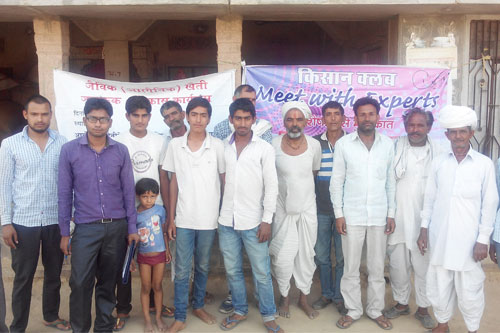
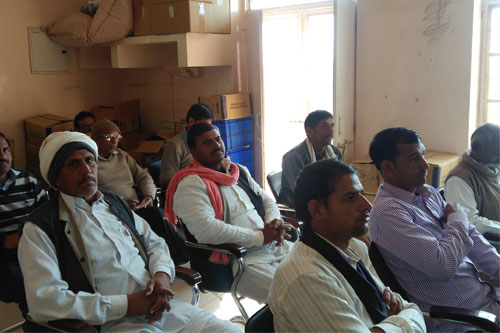
WHAT ARE THE ESSENTIAL FEATURES OF A PO?
a. It is formed by a group of producers for either farm or non-farm activities.
b. It is a registered body and a legal entity.
c. Producers are shareholders in the organization.
d. It deals with business activities related to the primary produce/product.
e. It works for the benefit of the member producers.
f. A part of the profit is shared amongst the producers.
g. Rest of the surplus is added to its owned funds for business expansion
WHO OWNS THE PO?
The ownership of the PO is with its members. It is an organization of the producers, by the producers and for the producers. One or more institutions and/or individuals may have promoted the PO by way of assisting in mobilization, registration, business planning and operations. However, ownership control is always with members and management is through the representatives of the members.
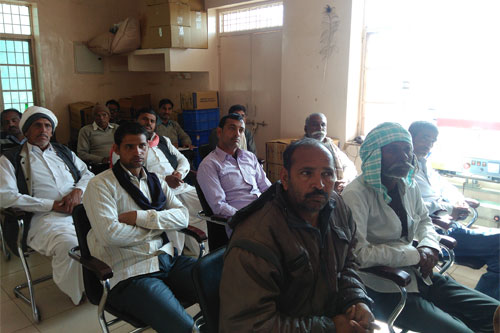
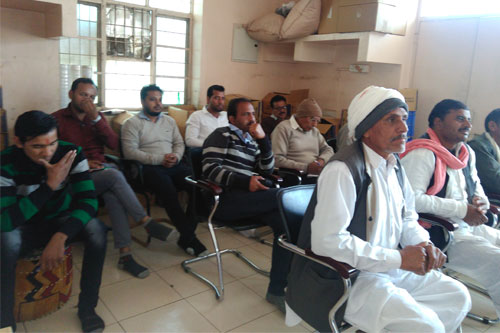
WHO CAN PROMOTE A PO?
Any individual or institution can promote a PO. Individual persons or institutions may promote PO using their own resources out of goodwill or with the noble objective of socioeconomic development of producers. If, however, the facilitating agency wishes to seek financial and other support, then they have to meet the requirements of the donor/financing agency.
WHO PROVIDES SUPPORT FOR PROMOTION OF PO?
NABARD, SFAC, Government Departments, Corporates and Domestic & International Aid Agencies provide financial and/or technical support to the Producer Organisation Promoting Institution (POPI) for promotion and hand-holding of the PO. Each agency has its own criteria for selecting the project/promoting institution to support.
CAN AN NGO PROMOTE PO?
Yes, it can. The NGO may be a non-profit organization, but not the PO. The NGO can promote PO which will provide better income to the members. Sharing of profit among members is an important objective of the PO.
WHAT ARE THE DIFFERENT LEGAL FORMS OF PO?
Producer Organization can be registered under any of the following legal provisions: a. Cooperative Societies Act/ Autonomous or Mutually Aided Cooperative Societies Act of the respective State b. Multi-State Cooperative Society Act, 2002 c. Producer Company under Section 581(C) of Indian Companies Act, 1956, as amended in 2013 d. Section 25 Company of Indian Companies Act, 1956, as amended as Section 8 in 2013 e. Societies registered under Society Registration Act, 1860 f. Public Trusts registered under Indian Trusts Act, 1882.
Which legal form is preferable for a PO? Institutions registered as cooperative societies and producer companies have legal provisions for sharing of profit earned by the PO by way of dividend. Other legal forms do not explicitly provide for profit sharing. However, the PO can offer better price for the produce it procures from the members, thus, benefiting the latter. Similarly, it canprocure inputs/raw material in bulk and sell to members with low margin. Such activities are permissible for POs under all legal forms.
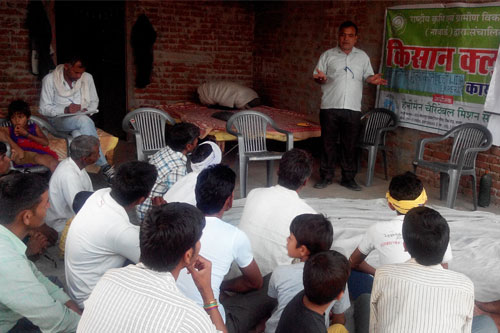
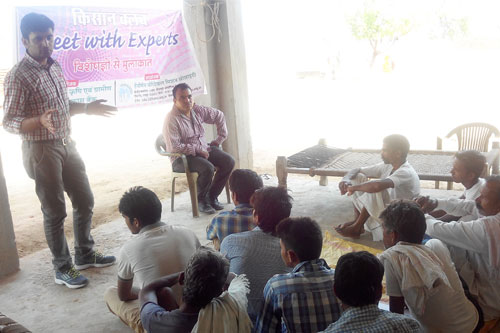
IS REGISTRATION MANDATORY FOR A PO?
It is preferable for the PO to work as a legal entity. Only such an entity can enter into legally valid contracts including mobilization of funds from other institutions. There are specific Acts under which the PO could be registered. It is also possible for a PO to migrate from one legal form to another. While choosing a legal form, the following factors may be kept in view: a. Primary producers should benefit from the surplus generated by the PO. b. Process of Registration should not be too demanding in terms of time and resources. c. The legal form needs to fit into its business needs, organizational priorities, social capital and management capacity.
WHAT ARE THE IMPORTANT ACTIVITIES OF A PO?
The primary producers have skill and expertise in producing. However, they generally need support for marketing of what they produce. The PO will basically bridge this gap. The PO will take over the responsibility of any one or more activities in the value chain of the produce right from procurement of raw material to delivery of the final product at the ultimate consumers’ doorstep. In brief, the PO could undertake the following activities:
a. Procurement of inputs
b. Disseminating market information
c. Dissemination of technology and innovations
d. facilitating finance for inputs
e. Aggregation and storage of produce
f. Primary processing like drying, cleaning and grading
g. Brand building, Packaging, Labeling and Standardization
h. Quality control
i. Marketing to institutional buyers
j. Participation in commodity exchanges
k. Export
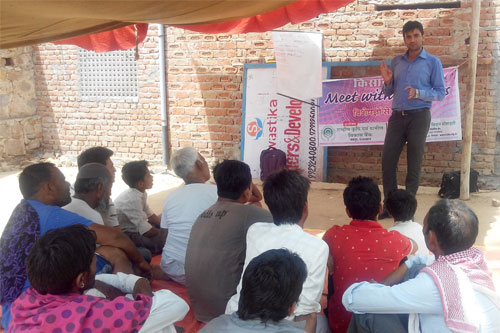
WHAT ARE OTHER BENEFITS FOR THE MEMBERS OF A PO (OTHER THAN BETTER INCOME)?
A PO is a collective of farmers (and non-farmers) who are the primary producers of a product (an agricultural produce or a manufactured product). It, therefore, can work as a platform to facilitate better access to government services, like PDS, MNREGA, Scholarships and Pensions, etc. It can liaison with the Government Departments for convergence of programs, like drinking water, sanitation, health and hygiene.
WHO CAN BECOME MEMBER OF A PO?
PO is an organization of the producers, specifically the primary producers. All primary producers residing in the relevant geography, and producing the same or similar produce, for which the PO has been formed, can become member of the PO. Membership is voluntary. The procedure for obtaining PO membership depends on the bye-laws of the PO. The founder-members are those who were there at the time of formation of the PO. Other members join the PO later. However, all members enjoy equal rights. A primary producer can become member of a PO by submitting an application and a nominal membership fee. Some POs also charge annual membership renewal fee. Although primary producers obtain membership of PO voluntarily, the promoting institution should make efforts to bring all producers into the PO, especially the small producers.
INTERESTED PERSONS CAN JOIN:
Technical support for member PO
- Handholding to the new PO
- PO formation
- Legal and Technical knowhow
- Financial Management
- Training for Cultivation, Interculture Operations, Harvesting,
Post Harvesting, Processing, Manufacturing, and Trading etc
Certifications Management.
STEPS OF REGISTRATION:
HOW TO FORM FPO-
- CLICK ON “JOIN THE ASSOCIATION”.
- FILL THE REGISTRATION FORM,
- PAY FEES AS REQUIRED ON PAYMENT GATWAY
- MEMBERSHIP CARD GENERATION
- PRINT THE CARD
NOTE:
- Kindly keep ready your passport size photograph before filling the application form.
- Fill all necessary information in the form with proper address with pin code.
ACTIVITIES AFTER BECOMING MEMBERS OF ASSOCIATION-
OFPAI members include growers, processors, certifiers, farmers associations, distributors, importers, exporters, consultants, retailers, and others involved in organic sector.
OFPAI members work together through networking, advocacy, and other initiatives to encourage and protect organic farming practices, and to share messages about the positive environmental and nutritional attributes of organic products with consumers, the media, and policymakers.
